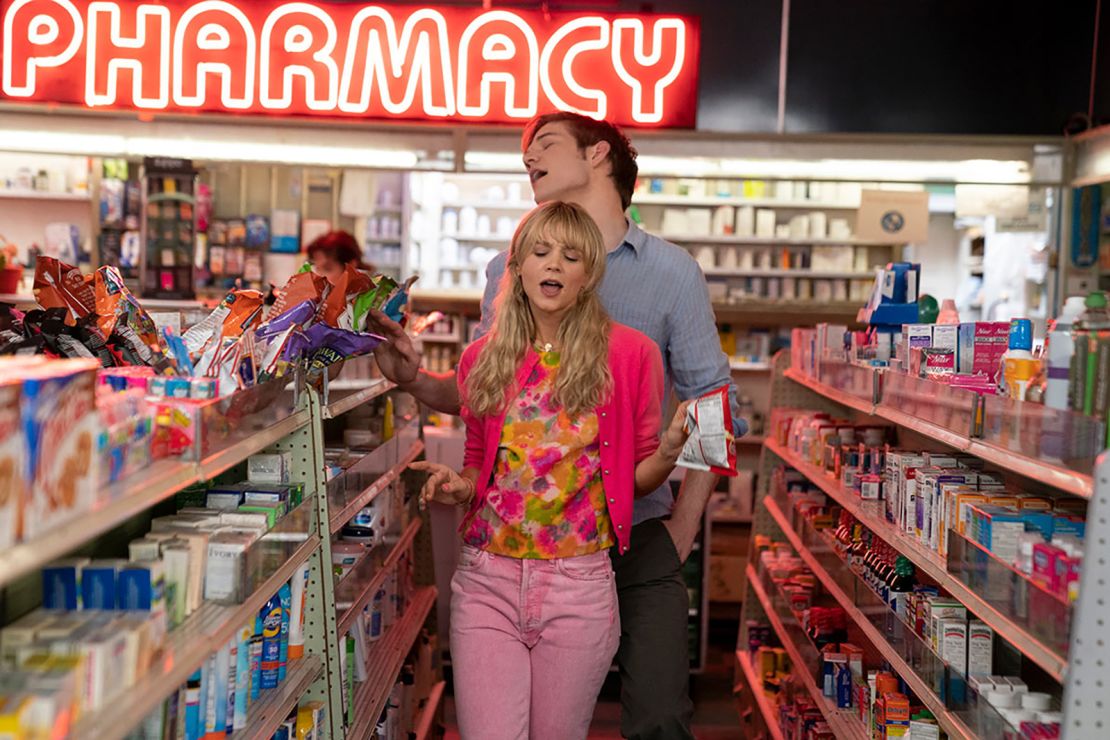Editor’s Note: Sara Stewart is a film and culture writer who lives in western Pennsylvania. There are mild spoilers below for “Promising Young Woman.” The views expressed here are solely the author’s own. View more opinion articles on CNN.
“I was hoping you’d feel differently by now.”
Carey Mulligan’s character is highly quotable in the black comedy “Promising Young Woman,” but this one line stands out as a mission statement: For all the high-profile attention to sexual predators in recent years, rapists still get away with it most of the time – and victims who speak out are still likely to have their lives turned upside down.

From the first scene of this film written, directed and produced by Emerald Fennell, Cassie (Mulligan) is gunning for men who prey on women. Playing drunk at clubs and bars, she finds there’s always a supposedly well-intentioned guy willing to make sure she gets home – or take her to his place. When he inevitably crosses a line, she snaps into sobriety.
It’s being called the latest rape-revenge movie (a category spawned by films like “I Spit on Your Grave” and “Ms. 45”), and I guess it technically is. But “Promising Young Woman,” a messy mix of humor and drama and horror that revolves around a female friendship, feels altogether different from these earlier movies and others like them.
It lacks the familiar beats we’ve come to expect: The monstrous initial act of sexual violence, the ensuing bloodbath as the female victim comes after her attacker (or attackers, usually). The rapists are clearly villains. The punishment fits the crime. The idea, I suppose, is to send your audience home feeling vindicated, though that’s not always how they have felt.
In recent years, more female directors have pushed this exploitation-prone genre forward, thankfully. 2017’s “MFA” (whose poster is curiously similar to this film’s – do studios think women see only in pink and purple?) featured an art major turning vigilante after an assault by a fellow student, but avoided an easy catharsis for viewers. That same year brought “Revenge,” a brutal splatter-gore thriller that opted not to depict its pivotal rape scene on camera, while last year’s “Black Christmas” reinvented a slasher cult classic as an indictment of frat bro rape culture.

“Promising Young Woman” takes it a step further, as Fennell zeroes in on regular dudes instead of the usual easily identifiable baddies. Her opening credits, set at crotch level, depict a group of khaki-clad dorks grinding on the dance floor, the camera panning back to take in the dull little bar they’re in. You’ve been at a place like this, a party like this. These aren’t monsters – they’re your coworkers, your fellow students, your acquaintances. In a casting coup, they’re played by some of TV’s nicest guys throughout the film: Adam Brody, menschy Seth Cohen of “The O.C.”; Max Greenfield, the much-loved Schmidt in “New Girl”; Sam Richardson, bumbling Richard Splett from “Veep.”
But, as any adult woman will tell you, it’s the self-proclaimed “nice guys” who can turn out to be the absolute worst.
Equally notable: Fennell’s protagonist is not actually the victim. The galvanizing event happened to her best friend, Nina, while the two were in medical school. With withering humor, the film suggests it shouldn’t be this radical to be enraged about sexual assault even when it didn’t happen directly to you.

Because, in reality, rape doesn’t just affect the victim. It can also destroy the people who love them – like Cassie, whose mental health is fraying even as she adds hash marks to her payback ledger. And the predator doesn’t get away with it on his own. He’s aided by other men, and women, who won’t believe the victim’s story; lawyers who impugn their credibility; misogynist rulings – like that in the case of Brock Turner, the Stanford student who in 2016 got a sentence of six months for felony sexual assault (when the maximum is 14 years) from a judge who expressed worry that “a prison sentence would have a severe impact on him.” Discussion at that time of Turner’s being a “promising young man” could easily have inspired this movie’s title (though I haven’t found Fennell overtly acknowledging that anywhere).
The heart of Nina’s story comes, very much, from the real world: According to the National Sexual Violence Resource Center, the majority of sexual violence is perpetrated by someone the victim knows. Less than 1% of rapes lead to felony convictions, according to a 2018 Washington Post story. Meanwhile, it said, 89% of victims suffer emotional and physical aftereffects. And a 2016 Justice Department report found the vast majority of sexual assaults and rapes are unreported. Why? According to the report, some victims fear retaliation (not just from the perpetrator but from society at large) and others think the police wouldn’t do anything to help them. Even worse, some “didn’t think the rape or sexual assault was important enough to report.”
Get our free weekly newsletter
But who wants to hear a bunch of statistics, right? Fennell’s turn as showrunner on the second season of “Killing Eve” (and possibly her fantastic portrayal of Camilla Parker-Bowles on “The Crown”) has clearly taught her that what people respond to is brightly-colored gallows humor. (Which is also a brilliant clap back at the enduring sneer that feminists just need to lighten up.)
Make no mistake, though: Underneath this film’s candyland ambiance is a roiling dark river of anger that the world, in fact, does not feel differently by now.
But maybe “Promising Young Woman” will give it another nudge.



